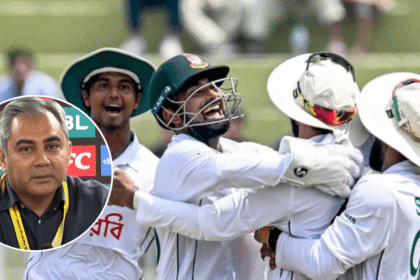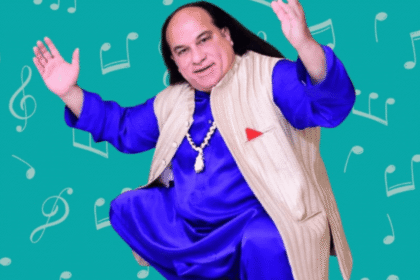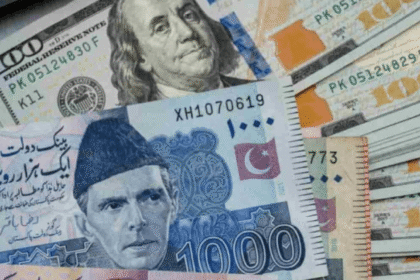The highly anticipated release of the Pakistani Punjabi-language film The Legend of Maula Jatt, starring Fawad Khan and Mahira Khan, has encountered significant challenges in India. As of September 28, 2024, government sources have suggested plans to block the film’s release, primarily driven by political backlash from the Maharashtra Navnirman Sena (MNS) leader Raj Thackeray. Thackeray has publicly declared his intentions to prevent the film’s screening at any cinema in Maharashtra, signaling a contentious political climate surrounding cultural exchanges between India and Pakistan.
- Political Context and Backlash
- Background of The Legend of Maula Jatt
- Changing Release Plans
- Legal and Regulatory Challenges
- The Impact of Nationalism on Cinema
- The Status of Pakistani Cinema in India
- Previous Collaborations and Cultural Exchange
- Consumer Sentiment and Cultural Reception
- Future of Pakistani Films in India
Political Context and Backlash
The political landscape in India has seen rising tensions regarding the screening of Pakistani films and the participation of Pakistani artists in Indian media. Following the Uri attack in 2016, which resulted in the deaths of 19 Indian soldiers, the Indian Motion Picture Producers Association passed a resolution that effectively banned Pakistani actors and crew members from working in Indian films. This resolution marked a significant turning point, leading to increased scrutiny of Pakistani content in India and the rise of nationalist sentiments against cross-border collaborations.
Thackeray’s opposition to The Legend of Maula Jatt aligns with a broader nationalist agenda, seeking to protect what he perceives as Indian cultural integrity. His public statements reflect a growing sentiment among certain political factions in India that reject any engagement with Pakistani cultural products. The backlash against this film underscores the complexities of cultural diplomacy and the potential for entertainment to become a battleground for political discourse.
crossorigin=”anonymous”>Background of The Legend of Maula Jatt
The Legend of Maula Jatt is directed by Bilal Lashari and was initially released in Pakistan in 2022. The film is a modern retelling of a classic Punjabi folklore tale, blending action and drama with vibrant visuals and strong performances from its leads. Fawad Khan, a prominent figure in both Pakistani and Indian entertainment, portrays the titular character, Maula Jatt, while Mahira Khan plays the female lead. The film garnered significant acclaim in Pakistan, becoming a box-office success and revitalizing interest in Punjabi cinema.
Despite its success in Pakistan, the film’s journey to Indian cinemas has been fraught with challenges. Originally slated for release in India, it was submitted for clearance to the Central Board of Film Certification (CBFC) by Zee Entertainment Enterprises Ltd, the film’s Indian distributor. While the film was cleared by the CBFC, it ultimately faced cancellation of its release due to escalating political tensions.
Changing Release Plans
In light of the recent political backlash, the film’s release strategy has shifted. According to producers, the film will now be limited to release in Punjab, focusing on regions with a significant Punjabi-speaking audience. This decision reflects an attempt to mitigate potential backlash while still reaching audiences who would appreciate the cultural context of the film.
The response from the Indian film industry and distributors has been cautious. PVR INOX, a major cinema operator with 90 screens in Punjab, has yet to confirm whether they will screen the film. As of late September, tickets for the film had not gone on sale, adding to the uncertainty surrounding its release.
crossorigin=”anonymous”>Legal and Regulatory Challenges
The Indian legal framework surrounding film releases poses additional obstacles for The Legend of Maula Jatt. Although the film has received clearance from the CBFC, the Cinematograph Act does not grant the Union government the authority to override the CBFC’s decision once a film has been approved. This legal nuance complicates efforts by political leaders to impose a ban on the film after it has already passed regulatory scrutiny.
This scenario highlights the tensions between cultural governance and political intervention. While the CBFC’s role is to assess films based on content, the political climate can influence public sentiment and commercial viability, leading to informal bans even when films are technically cleared for release.
The Impact of Nationalism on Cinema
The situation surrounding The Legend of Maula Jatt is emblematic of the broader issues facing the Indian film industry concerning nationalism and cultural exchange. Nationalist sentiments have increasingly shaped public perceptions of foreign content, particularly from Pakistan. This climate of distrust and animosity restricts the exchange of cultural products that could foster understanding between the two nations.
For many Indians, the presence of Pakistani films and artists in their entertainment landscape is viewed with skepticism. This sentiment is particularly pronounced among political groups advocating for a strict delineation between Indian and Pakistani cultural expressions. As a result, Pakistani films face substantial barriers to entry into the Indian market, limiting opportunities for cross-cultural collaboration.
crossorigin=”anonymous”>The Status of Pakistani Cinema in India
Historically, the presence of Pakistani cinema in India has been minimal in recent years. The last major release from Pakistan that saw significant distribution in India was Bol, which came out in 2011. This film received a warm reception, but since then, the landscape has changed dramatically. Notably, Joyland, Pakistan’s submission to the Oscars last year, faced similar challenges and never materialized beyond a few privately organized screenings due to a lack of clearance from the CBFC.
The restrictions imposed on Pakistani films have created a challenging environment for filmmakers. The Indian audience, which once enjoyed a more diverse array of cinematic offerings, now finds itself with limited access to Pakistani narratives and artistic expressions. This trend undermines the potential for mutual appreciation of cultural products and stifles opportunities for collaboration.
Previous Collaborations and Cultural Exchange
Despite the strained relationship between the two countries, there have been instances of collaboration in the entertainment sector. Zee Entertainment, for example, had previously operated a channel dedicated to syndicating Pakistani TV shows. However, following the Uri attack, this channel was shut down, further complicating the cultural dialogue between India and Pakistan.
In recent years, the Zindagi brand, initially focused on Pakistani dramas, transitioned to an online-only model. This move allowed for some level of collaboration with Pakistani talent, albeit under heightened scrutiny. The 2020 web series Churails, produced for Zee, faced a ban in Pakistan but managed to find an audience in India before subsequent challenges arose regarding payment processing to the platform.
These instances reveal the complexities of cultural exchange, as initiatives that seek to bridge divides often confront significant barriers. The interplay between political climates and artistic expression continues to shape the landscape of South Asian entertainment.
crossorigin=”anonymous”>Consumer Sentiment and Cultural Reception
Consumer sentiment plays a crucial role in the success of films across borders. In India, audiences remain divided regarding the acceptance of Pakistani films. While some segments of the population embrace the cultural richness and storytelling of Pakistani cinema, others harbor reservations influenced by political narratives.
The film industry has a unique capacity to challenge stereotypes and foster dialogue. However, when political climates overshadow artistic endeavors, the potential for meaningful engagement diminishes. For The Legend of Maula Jatt, the challenge lies not only in securing a release but also in resonating with audiences amidst a backdrop of heightened nationalism.
Future of Pakistani Films in India
The future of Pakistani cinema in India remains uncertain. As long as political tensions persist, films from Pakistan will continue to face challenges in finding distribution and acceptance. The ongoing ban on Indian films in Pakistan, instituted in 2019, has further complicated the dynamics, fostering a cycle of mutual hostility that limits opportunities for collaboration.
In this environment, Pakistani filmmakers must navigate a landscape that is increasingly complex. They must consider not only the creative aspects of filmmaking but also the political implications that may impact their work’s reception. Future releases may require a reevaluation of how to approach storytelling in a way that resonates with Indian audiences while remaining authentic to their cultural roots.
Cultural Exchange in a Challenging Landscape
The saga of The Legend of Maula Jatt serves as a poignant reminder of the challenges inherent in cultural exchange between India and Pakistan. As political sentiments shape public perceptions, filmmakers on both sides face the daunting task of fostering understanding and appreciation through their work. The impact of nationalism on cinema is profound, shaping narratives and limiting opportunities for collaboration.
While the film’s immediate future in India remains in limbo, it underscores the importance of dialogue and engagement in overcoming barriers. As artists continue to create and share stories, the hope is that audiences will embrace the richness of diverse narratives, paving the way for a more inclusive cultural landscape in South Asia.
crossorigin=”anonymous”>TheLegendofMaulaJatt #FawadKhan #MahiraKhan #PakistaniCinema #CulturalExchange #IndianCinema #PoliticalBacklash #FilmReleaseChallenges







